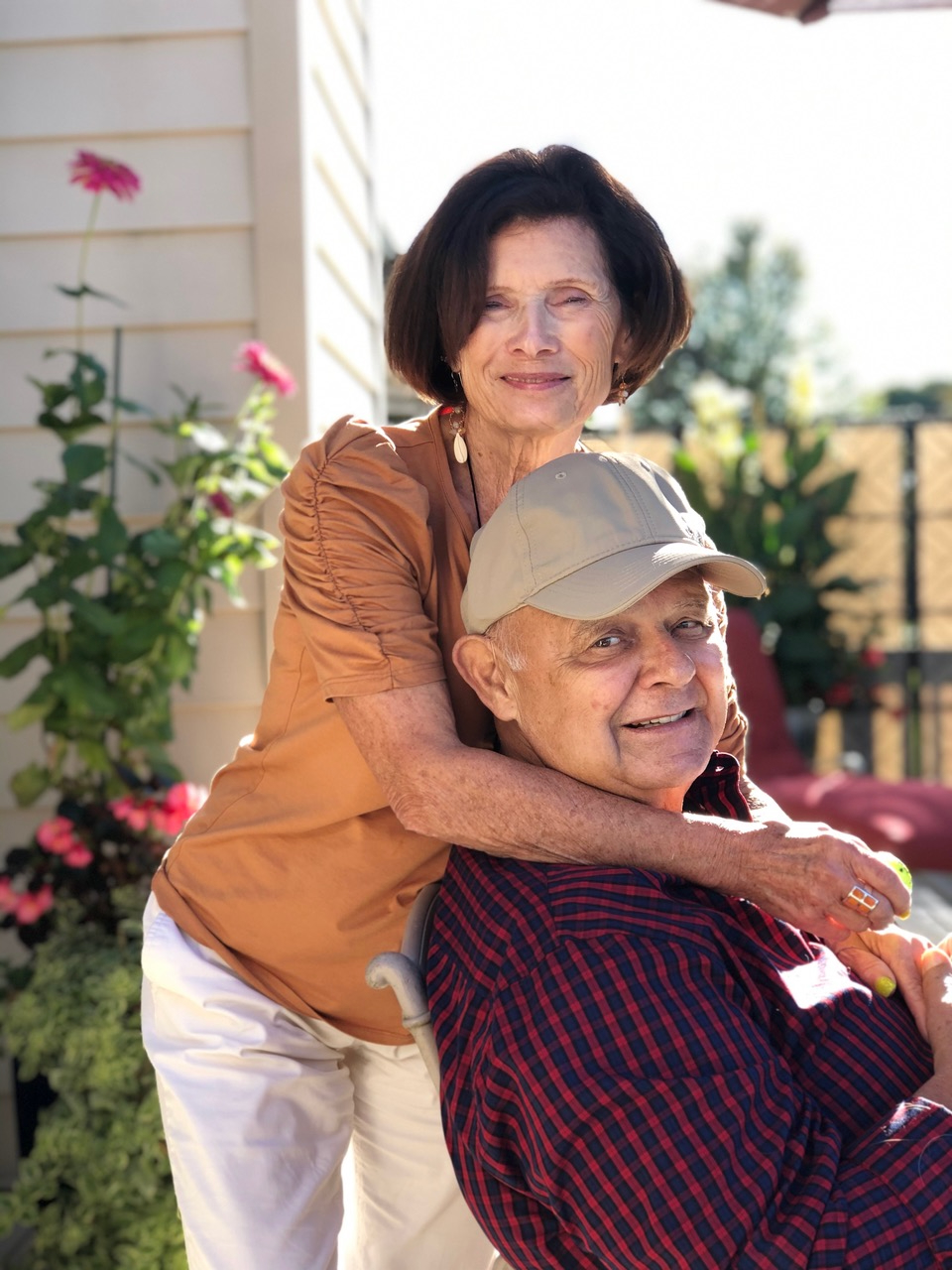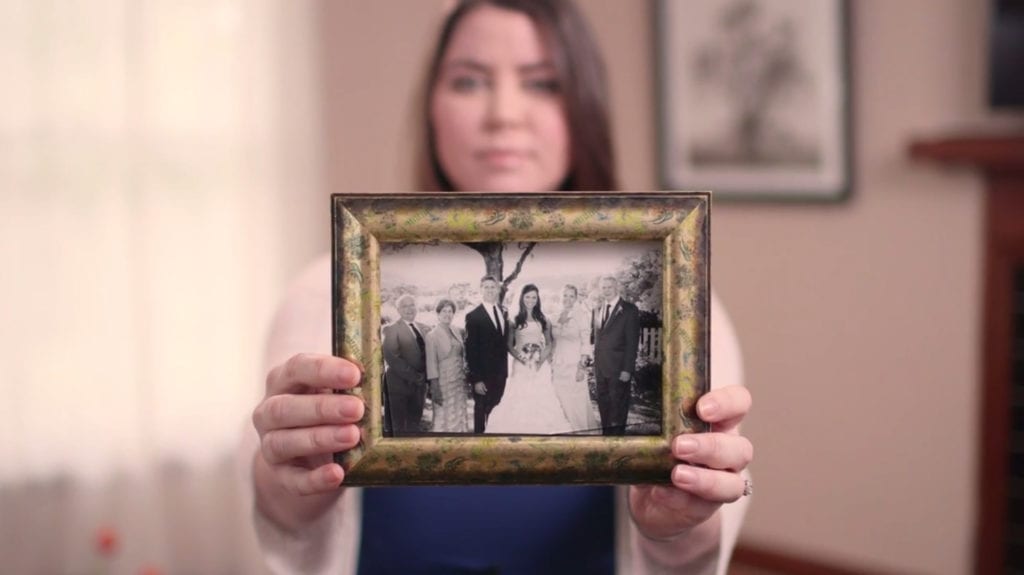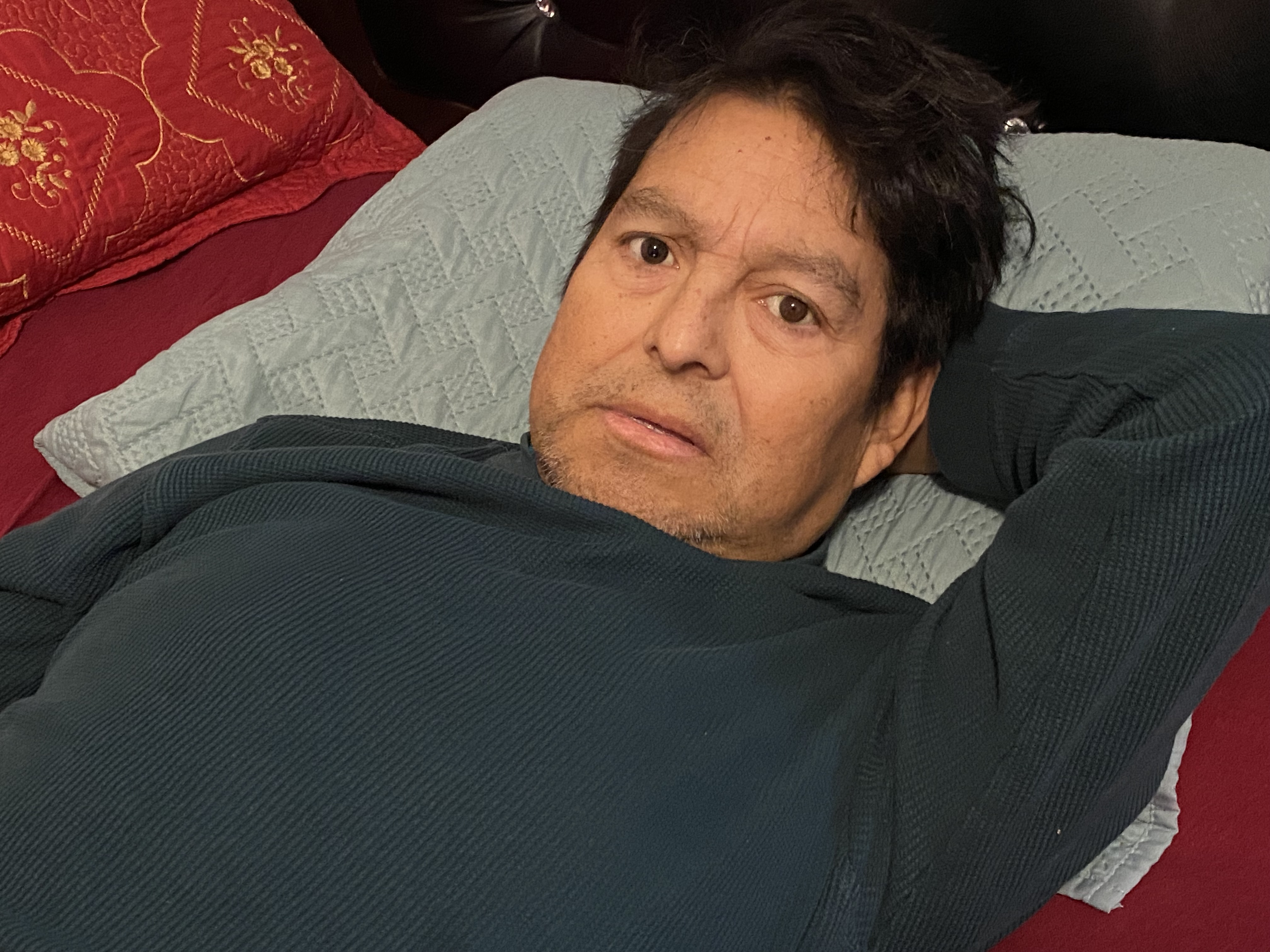Elaine shared her story in February of 2023.
Joe and I met in 1994 after a friend recommended I work with him to purchase a car. Joe worked as a new car salesman but was far from the dishonest, pushy salesman stereotype. He was handsome, did well for himself and had a magnetic smile. I was smitten from the moment I met him and actually made the first move by saying: “If you’re interested, let me know.” He had my phone number already because I had bought a car. We married four years later.
He was a very traditional Italian man — in his build, personality and in some of his antiquated viewpoints. He was strong-minded but not arrogant. He was a family man who did a lot with and for his mother. Joe had some old-school values that made me raise my eyebrows, but he was receptive to being brought up to social speed, so to speak. We both had had previous marriages and never took our love for granted. We enjoyed spending time together, may it be boating, golfing or playing with our pets, two dogs and two cats.
Joe had experienced some intermittent pain over the previous five years, but he rarely complained and remained active, so it didn’t feel alarming. Around Christmas 2021, however, his pain became concerning. He admitted that he had been experiencing new, radiating pain for three weeks that extended from his groin to the center of his back. He had an appointment scheduled with his internist later in January, but I urged him to reach out to his urologist immediately. In a typical guy's response, he refused. I told him he had five minutes to call before I would do it myself. He scoffed. I was just about to reach for the phone when he acknowledged defeat and made the call. He was seen the next week, and the tests ordered by his urologist started the month-long process to getting a diagnosis.
After seeing his urologist, he saw his internist, each ordering tests that became more and more diagnostically specific. A PET scan was the final piece of information. When we met with the oncologist on February 4, 2022, she respectfully told us he had metastatic biliary cancer without a cure or treatment to slow the progression. Joe seemed to be mentally prepared, even stoic; I don’t know if he was trying to protect me, but I was shocked by the news. Years before, he had been diagnosed with prostate cancer and faced another issue with questionable cells, but in both instances, there were treatment options. I was surprised this time there was nothing to be done.

Joe made the difficult call to his sons, and a week later his son and family from out-of-state flew in to visit. My daughter also flew in soon after. Meanwhile, nearby family came to spend time with Joe. He was in pain and needed rest, but he was mobile and able to take care of himself completely, which was very important to him. Joe and his two sons spent several hours of precious time together reminiscing, laughing, sharing stories. I asked them both to remember this night, to remember their dad this way, and to embrace it as a win because the weeks ahead were going to be dramatically different.
Just a few days later, Joe told me, “I don’t want to leave you, but I don’t know how much more of this I can take.” If Michigan allowed terminally ill adults to obtain an aid-in-dying prescription, Joe would have been proactive in requesting a prescription that week. He’d been able to say his goodbyes and was ready to go. We were both supporters of medical aid in dying and believed that a terminally ill person should have a right to choose for themselves. We had always told one another, “If I’m ever facing imminent death and in excruciating suffering, you have to find a way to help me go.” A promise I made but couldn’t keep.
Already in significant pain, one week later Joe would endure the most inhumane, brutal agony. The cancer was ravaging his body at a faster pace than pain medications could keep up. Joe was receiving medications every hour, and hospice was constantly having to re-adjust them. Monday’s dose of morphine couldn’t touch the pain he was in by Wednesday. I was angry, not with hospice, but devastated that no matter how much they attempted to manage his pain, they were failing.
Throughout his last five weeks, Joe probably only experienced 40 hours in total of peace — just a few hours here and there of relief. Everything Joe asked me to promise him, I couldn’t control. I couldn’t take away his excruciating pain. I couldn’t give him mobility. I couldn’t restore his meaningful voice or captivating smile. I knew if he could see himself in that condition, he’d be mortified!
The early morning of March 30, 2022, Joe was struggling to breathe, and I could see blood trickling from his nose. His respirations were very labored, and there was a fine mist of blood permeating the air every time he exhaled. Every breath was like that. The blood had settled on his shirt, the blankets, the pillow, his hair, and on his face dripping down his cheeks. I called the hospice nurse to come earlier rather than in the afternoon as planned. In the meantime, I cleaned Joe up as best I could and plugged his nasal passages with rolled up tissue. Every 15 minutes the tissues were so saturated they had to be replaced. This went on for hours before Joe was finally freed of his pain and suffering permanently.
It was brutal to hear Joe struggle to breathe and equally as devastating to see. When the hospice nurse arrived, she shared that she had never seen anything like that before. Joe deserved better. He deserved a gentle death, not weeks and weeks of excruciating pain. Many times over the years we had talked about peaceful ways to die, not prolonged, agonizing, never-ending pain and loss of self.
Regretfully, living in Michigan meant there was no option except to endure what lay ahead, one brutal day after another without reprieve. Joe never wanted this kind of humiliating end of life. No one does. But short of illegal actions in Michigan, he didn’t have a choice.






